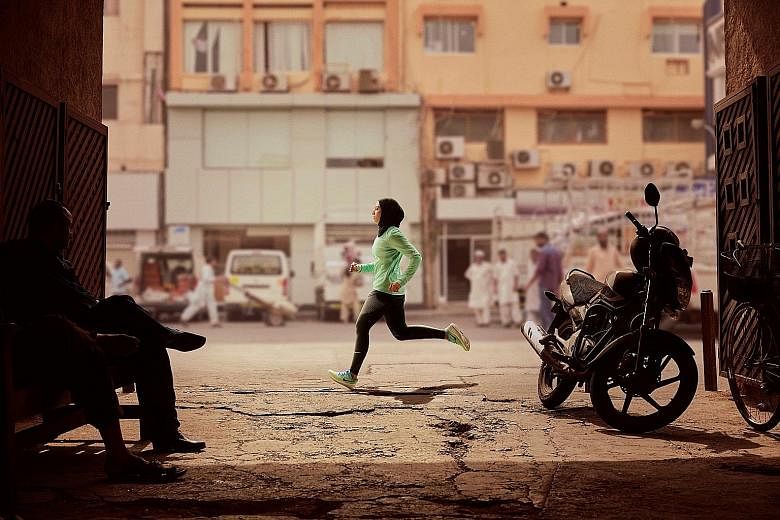LONDON • The International Association of Athletics Federations (IAAF) is to beef up its investigation into the next generation of marathon shoes, amid concerns some may contain illegal springs.
The potential intervention by athletics' governing body came on the day Nike revealed the design of its new Zoom Vaporfly Elite shoe - to be used by athletes attempting to break two hours for the marathon - which will contain a special carbon-fibre plate in its sole.
A spokesman for Nike has told The Guardian that the shoe, which the company believes makes runners 4 per cent more efficient compared to its previous fastest marathon trainer, adheres to the specifications of the IAAF.
When The Guardian contacted the IAAF to ask whether Nike's carbon-fibre plate was legal, a spokesman said it was interested in its technical advances but wanted to make sure they - and shoes from other manufacturers - conformed to its rules.
"We are aware of the speculation around the shoe and have received inquiries about new designs of shoes currently being worn by elite athletes," said a spokesman.
"Because of this speculation and the increased interest in the development in this area, the IAAF is going to discuss shoe approval processes as defined by the competition rules as part of the agenda at the IAAF technical committee in two weeks' time."
There has been growing speculation about Nike footwear over the past year, with the former Nike Oregon Project member Steve Magness and the sports scientist Ross Tucker questioning whether springs were used in the shoes worn by the Ethiopian Kenenisa Bekele at the Dubai marathon last month.
A Nike spokesman insists that Bekele was wearing a legal shoe.
"Bekele was testing a prototype racing flat that we've been working on for nearly two years," the spokesman said. "It adheres to IAAF requirements."
Meanwhile, Nike has also revealed that its ambitious project to break the two-hour mark for the marathon will take place later this spring at the Autodromo Nazionale Monza complex in northern Italy, on a 2.4km course.
Kenyan Olympic champion Eliud Kipchoge, Ethiopia's Lelisa Desisa and Eritrea's Zersenay Tadese will spearhead the bid to shave almost three minutes off the world record.
The world record stands at 2hr 2min 57sec, set by Kenyan Dennis Kimetto in Berlin in 2014.
However, most experts believe the attempt to go under two hours for the marathon is more about promoting Nike's new range of shoes than a serious attempt on a record that few believe can be broken under IAAF rules.
Besides breaking new ground in shoe technology, Nike has also taken another step into the lucrative Islamic clothing market by unveiling a hijab designed for female Muslim athletes. The product, which has been in development for a year, was tested by athletes including figure skater Zahra Lari of the United Arab Emirates.
The pull-on hijab is made of light, stretchy fabric that includes tiny holes for breathability and an elongated back so it will not come untucked. It will go on sale next year.
THE GUARDIAN, REUTERS

